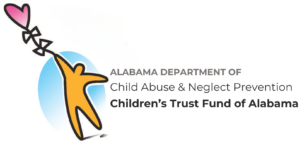From the moment we see a young Beth Harmon learn to save her precious green tranquilizers, it is obvious that substances will play a prominent role in her story. The show walks a fine line between glamorizing the adventures of substance abuse and suspending a beloved main character just outside total self-destruction. With the show’s unprecedented ability to boost chess into public consciousness, will it have the same effect on drug prevention?

This is probably a good place to say: small spoilers ahead.
- It is probably not the best show for kids.
“You take the r̶e̶d̶ green pill, you stay in wonderland, and I show you how deep the rabbit hole goes.”
Part of what makes The Queen’s Gambit so appealing is that it feels honest, like a window into the life of a female prodigy in the 1960’s-ish era.  Although it’s fictional, the characters feel complex and true to life: the silent custodian with a passion for chess, the quirky orphan alienated by her intellect and gender, the strong friend offering lessons in family and success.
Although it’s fictional, the characters feel complex and true to life: the silent custodian with a passion for chess, the quirky orphan alienated by her intellect and gender, the strong friend offering lessons in family and success.
We believe them and take their experiences at face value. However, this willingness to follow along backfires when substances enter the mix. It is a gray area, even for Beth: do the green pills unlock her precocious talents? Enhance them? Hinder them? Follow the series through, and you’ll find her friends generally agree the pills drag Beth down. But all the averted panic attacks and complete thrashings on the chessboard in the episodes before the finale might bring that conclusion into doubt.
I’m not saying go see what the pills in the cabinet do to your productivity. I’m saying the opposite: the show has us believe in Beth and her abilities, but it also closely ties her talents to her dependence on those green pills. The adults in the room may scoff and say “the consequences were obvious.” But for teenagers and young adults who are high strung, eager for success, and also possibly on the lookout for an escape, what consequence does the series really show them? A lavish lifestyle? A successful woman fawned over by her male peers? A genius 20-year-old taking commie names?
All I’m saying is that, breaking news: youths are impressionable. More at 10 PM.
- Mental Health and substance abuse influence each other
“C̵r̵e̵a̵t̵i̵v̵i̵t̵y̵ Substance abuse and psychosis often go hand in hand.”
On a surface level, it is pretty common knowledge the psychological trauma can influence and fuel a drug abuse habit. Over the course of seven episodes, Beth endures hardship in every new setting: a mother with mental illness that turns to suicide, the world bending enrollment into an orphanage, the constant game of lost and found in her makeshift family unit, and so on. It’s no mystery, except maybe to herself, what feeds Beth’s habits and behaviors.
We can imagine the stress that Beth is under. She’s a woman in a predominately male hobby, a result of sexism rather than lack of female interest. She’s the best and most talented in her field, yet everyone doubts her. She loves to win but has much to learn. She is pitted against her country’s sworn enemy. A quick mental inventory of the people and situations in your own life may ping a few characters that are similar to Beth. Maybe it’s you.
Despite the series’ controversial portrayal of “a woman at rock bottom,” it does deserve credit for featuring a scenario that is likely commonplace. Our hero, Beth Harmon, is under intense pressure, has a family history of mental illness, is prone to feeling alone, and has unfettered access to tranquilizers and alcohol. It is the perfect storm for a substance abuse habit to form, and surprise, it does.
Psychological factors aren’t the whole story, but they can make a prediction.
- Your support system is everything in recovery
“I’m here because you need me to be here. That’s what family does.”
The Queen’s Gambit reveals something important about recovery, and probably just life in general: People need a support system. It is not a coincidence that so many recovery programs use support groups and accountability partners. The road to sobriety often includes the family and rarely happens independent of it. The same is true for Beth Harmon.
Family can be a double-edged sword. Beth picks up a few bad substance habits from her family. She learns to sneak her tranquilizers from Jolene. She consummates her relationship with alcohol with the help of her adoptive mother Alma Wheatley. But just as importantly, Beth comes to realize her talents are sharper when she is sober. And she only reaches that conclusion with the intervention of Harry Beltik, the tough-love of Benny Watts, and the comforting hand of an older Jolene.
Visit any recovery website or skim a pamphlet and you’ll see just how much family is emphasized in the process. Beth saw the height of her skills under the influence in Paris and almost wasted years of effort. She hit rock bottom alone in her home, but slowly with the patient love and care of her concerned friends, found her way to the right path. Beth’s new family helped her find the strength to flush those pills and achieve her dreams. That’s lesson enough.
- There is hope in the end.
I love The Queen’s Gambit. I really do. Maybe it flirts too much with the excitement of substances. Perhaps it is light on consequences and heavy on glamour. But for those that need it, the series does offer some hope for the people who have struggled with substance abuse. By the series finale, Beth is better equipped to turn down offers of alcohol and willing to rid herself of her tiny green crutches. After a decade’s long struggle for inner peace and sobriety, she finds hope and resilience by focusing on her own talents and leaning on those that love her. 
If the show can teach us anything, it is that life does have room for desperate lows and great triumphs. A person struggling with a substance dependency may eventually find the willpower to break it. And perhaps, above all, there is no limit to what we can accomplish when we can lean on those around us.
Written by: Hunter Freeman
SAMHSA’s National Helpline
SAMHSA’s National Helpline, 1–800–662-HELP (4357), (also known as the Treatment Referral Routing Service) or TTY: 1–800–487–4889 is a confidential, free, 24-hour-a-day, 365-day-a-year, information service, in English and Spanish, for individuals and family members facing mental and/or substance use disorders. This service provides referrals to local treatment facilities, support groups, and community-based organizations. Callers can also order free publications and other information.
Disclaimer: The views and opinions expressed in this blog are those of the author and do not necessarily reflect the positions of APC.









